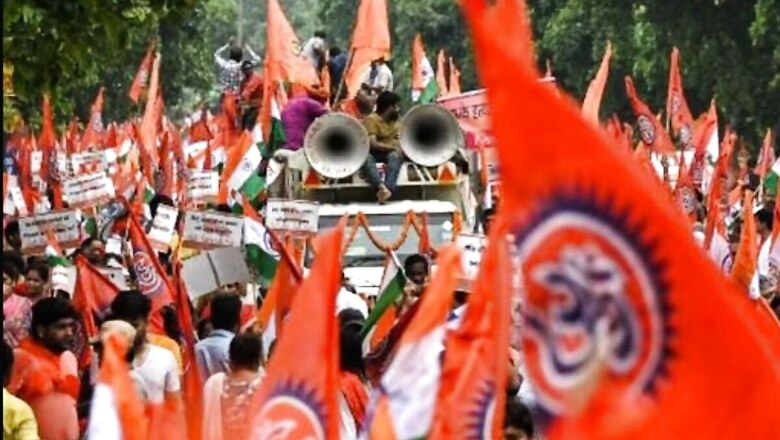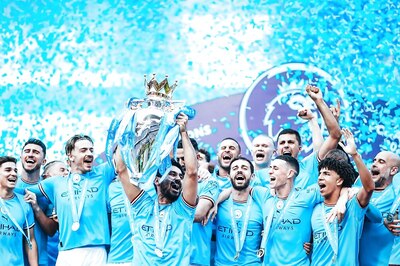
views
American billionaire George Soros funds activists against the current Narendra Modi-led government because he believes it is ‘Hindu nationalist’ and anti-minority. It is tough to bring even a single central government action to note and prove it to be anti-minority in the two terms of PM Modi, but such is the narrative and belief amongst the global left elite that they are convinced this government is bad and needs to be booted out. They say it is for the best of India and Indians, but again, that argument is more emotional than factual.
Why is it that a ‘Hindu nationalist’ government is seen in such a bad light in the West? After all, there is nothing wrong with being Hindu or nationalist. Why is it that this terminology is now universally accepted as a euphemism for a fascist and dictatorial government?
Sydney University professor and sociologist Salvatore Babones tells me it’s because Hindutva and fascism have been very cleverly likened in the West academia, but he believes the anti-Hindutva activism is a front for anti-Hindu bias.
“There is nothing in common between Hindutva and Nazism. What else is compared to Nazism? We routinely see Zionism, that is, Jews’ desire to return to Israel, as a form of fascism, which is ridiculous. We see these terms thrown around because they are very emotional terms, and people want to associate things they disagree with, with these emotional connections to absolute evil. Of course, this is pure rhetoric, but, I stress, for an American, who knows nothing about India, this rhetoric becomes all that person knows about India. That’s why this is causing such problems,” Babones said.
He also believes, regardless of political leanings, Indians of all shades must object to this classification of ‘Hindu nationalism’.
“Yes, the current Indian government is nationalistic, just like every American government is. Just like every major political party in India is. The current party in power is closely associated with Hinduism, just like every major party in India is,” he added.
“You can call it a Hindu nationalist government, but I wouldn’t use the same term. Is it a government that is Hindu in orientation? Yes. Is it a government that is nationalistic in orientation? Yes. But I stress to those who oppose the current government, when someday Congress comes to power, they will also be seen as a Hindu oriented government that will be highly nationalist,” the Professor explained.
I think the Congress will wish so, but possibly Professor Babones is not completely aware of that the Congress’s biggest issue in India is precisely that it is seen neither as Hindu in orientation nor nationalist. In fact, we have seen multiple examples of how even statements from within the Congress fold that are seen as remotely nationalist or keeping India above partisan politics are actively discouraged by the party ecosystem. The Congress has ceded this space to the BJP purely at its own peril.
But Babones’ point is larger – “If Indians accept this vilification of Hinduism and nationalism, they will find these sticks even to when the BJP is gone.”
He also finds a larger design here. “We have seen this playbook before. In western academia, there is a strong anti-Semitic strain. But after World War II, you couldn’t be publicly anti-Semitic, so it translated into anti-Zionism. It’s the same people, the same organisations, same departments of the same universities that used to be openly anti-Semitic that are now anti-Zionist.”
“Now, we are seeing those same elite institutions become anti-Hindutva. They can’t be openly anti-Hindu, but they can be anti-Hindutva and that message is simply the polite face of anti-Hinduism,” he added.
“You can’t always tell which anti-Hindutva activist is really anti-Hindu and therefore get away with it. But you look at the people who so vehemently are anti-Hindutva, and you ask, why are you elite white American or British intellectuals who have no connection to India, are so viscerally anti-Hindutva? And I can only trace it to the historical anti-Hinduism bias that was present amongst the elite American and British class. All you have to do is look at how Winston Churchill spoke about Mahatma Gandhi,” he explained.
The problem we are facing today is that most of these voices are also supported by predominantly Indians. If the last few months are anything to go by, the one year in the run-up to the next general elections in India are going to be as high-pitched as possible with a larger call to the world to ensure ‘Hindu nationalist’ forces are defeated. Ironically, this plays nicely into the hands of the BJP, the target of such attacks.
Read all the Latest Opinions here




















Comments
0 comment